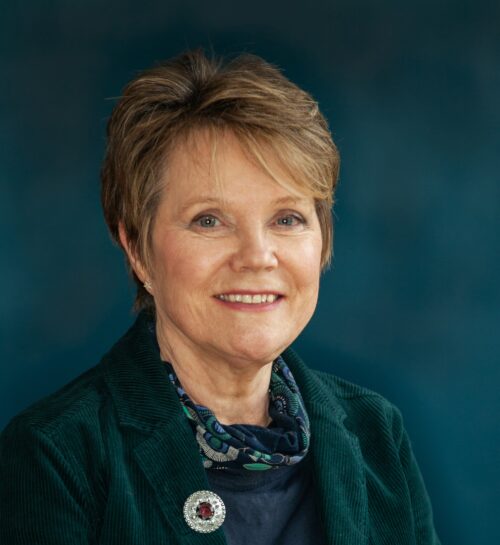
06 Jan From Eco-Distress to Resilience
Leading climate psychology specialist, coach, facilitator and speaker, Linda Aspey, has written the following highly topical piece on How Employers Can Support Staff in a Changing World. Linda has over 30 years’ experience working with leaders, teams, groups and individuals to understand complex systems, facilitate better conversations and better relationships so they can inspire others to make change happen …
“As the climate crisis intensifies, the once-distant impacts of environmental change have become an everyday reality, bringing eco-anxiety into both our personal and professional lives. Eco-distress—encompassing terms like eco-anxiety and climate anxiety—is characterized by emotional responses such as fear, sadness, guilt, helplessness, and depression. These feelings, especially prevalent among younger generations, reflect a rational reaction to the environmental threats we face and highlight our deep connection to the planet and those we care about.
Identifying challenges
For many, eco-distress manifests at home, where children’s growing concerns require reassurance that their feelings are normal, without dismissing their fears and instead listening, and taking steps together to take action. In the workplace, it’s more acute in roles directly tied to environmental decline, such as conservation or climate science. Other employees may experience cognitive dissonance—struggling with the moral conflict and dissonance of working in industries that negatively impact the environment, such as aviation, fast fashion, or agriculture, whilst also providing products and conveniences we need or value. These tensions can lead to feelings of isolation, disengagement, or even the decision to leave a role.
Despite its prevalence, climate change and its emotional impacts are rarely discussed openly at work. A phenomenon known as “socially constructed silence” often keeps these topics off the table. This (often unconscious and protectively defensive) avoidance can sometimes lead to “brightsiding,” where legitimate concerns are minimized through forced positivity. While optimism and action are essential, employees also need spaces to share difficult emotions without judgment. Suppressing these feelings can lead to burnout, isolation, and reduced creativity—hindering collective problem-solving.
Organizations increasingly recognize that addressing climate concerns is key to attracting and retaining talent because employees want to work for companies that demonstrate genuine environmental commitment and prioritize emotional wellbeing. Resilience in the face of climate challenges, however, isn’t just about individual toughness. Research shows resilience is built and maintained collectively—through relationships, networks, and cultures of care.
Key actions for support
To support employees and foster collective resilience and adaptability, employers can:
- Normalize climate conversations: Create a culture where discussing climate change and its emotional impact is safe and encouraged. Initiatives like climate psychology talks, workshops on having climate conversations, and Climate Café Listening Circles allow employees to process their feelings and build connection. These forums help reduce isolation, enhance relational skills, and lay the groundwork for collective adaptability.
- Commit to authentic climate action: Employees are highly attuned to authenticity and will quickly identify “greenwashing”, valuing organizations that take meaningful set ambitious goals and transparently report on sustainability progress. For industries with inherent environmental impacts, acknowledging the challenges and demonstrating a commitment to significant improvement can help align employees with organizational values.
- Engage employees in environmental initiatives: Involve staff in sustainability efforts, from reducing carbon emissions to designing products with circular lifecycles. Create opportunities for collaboration and innovation, ensuring that responsibility doesn’t fall solely on individuals. Bringing in external speakers who can share their sustainability journeys can also inspire fresh perspectives.
By addressing eco-distress openly and taking action on sustainability, employers can transform climate anxiety into a driver of connection, innovation, and shared purpose, fostering resilience in the face of a rapidly changing world.”
Environmental speaker
The author of the above piece, Linda Aspey, is in much demand as an inspirational environmental speaker and feedback on her presentations includes:
“It was an amazing session, with a great balance of content, moments of reflection and participation. I really loved the safe space it offered and the practical resilience strategies Linda shared.” Caroline Banquet, Global Strategy Director, Wavemaker Worldwide 2024.
“I have worked with Linda over many years on several occasions and situations, throughout all of which her work and support has proved immensely valuable and effective… she is a person of huge empathy and integrity.” Hannah Foster, Director of People, Royal Devon & Exeter NHS Foundation Trust, Northern Devon Healthcare NHS Trust.
“Thank you for taking the time and effort to be a part of our event, it was great working with you! I hope you enjoyed the rest of the day and look forward to working together again on future events.” Annie Relfe, Senior Event Marketing Executive Reed & MacKay 2024.
Contact
Please contact us to discuss Linda or other inspirational speakers joining you to speak at your next event either by email: info@therightaddress.co.uk or tel: +44(0)1895 827 800.

Sorry, the comment form is closed at this time.